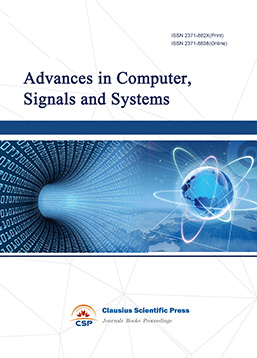Research on the Application of Artificial Intelligence Empowered Education Management
DOI: 10.23977/jaip.2023.060602 | Downloads: 102 | Views: 2137
Author(s)
Chen Xing 1
Affiliation(s)
1 Lyceum of the Philippines University, Batangas, Philippines
Corresponding Author
Chen XingABSTRACT
The technological revolution and industrial transformation have driven artificial intelligence to become the core driving force for a new round. This article explores the application scenarios of artificial intelligence in empowering education management and supply, student learning and evaluation, and teacher teaching and development in the field of educational management. This study proposes to promote the construction of new infrastructure for education management, dual empowerment of education and technology, support the reshaping of future education forms through artificial intelligence, strengthen the cultivation of professional talents in artificial intelligence, attach importance to ethical issues in the application of artificial intelligence in education management, stimulate teachers' high-level thinking and initiative, and lead the next generation of educational artificial intelligence innovation, in order to construct the transformation and innovation of artificial intelligence, improve the quality and efficiency of school education management work, and promote high-quality development of education.
KEYWORDS
Artificial intelligence; Education management; Human machine collaboration; Educational applicationsCITE THIS PAPER
Chen Xing, Research on the Application of Artificial Intelligence Empowered Education Management. Journal of Artificial Intelligence Practice (2023) Vol. 6: 13-17. DOI: http://dx.doi.org/10.23977/jaip.2023.060602.
REFERENCES
[1] Notice of the State Council on Issuing the Development Plan for the New Generation of Artificial Intelligence [EB/OL]. Central People's Government of the People's Republic of China (2017-07-02) [2018-11-06]
[2] UNESCO. First ever concerns on Artificial Intelligence and Education published by UNESCO [EB/OL] [2019-07-05]
[3] Huang Ronghuai, Zhang Hui, et al. Artificial intelligence promotes the implementation of the 2030 Agenda for Education [N]. China Education Daily, 2019-05-18 (03)
[4] Liang Yingli, Liu Chen. Analysis of the Current Situation, Typical Characteristics, and Development Trends of Artificial Intelligence Education Applications [J]. China Electronic Education, 2018, (3): 24-30
[5] Ministry of Industry and Information Technology [2017] No. 315. Notice of the Ministry of Industry and Information Technology on Issuing the "Three Year Action Plan for Promoting the Development of the New Generation Artificial Intelligence Industry (2018-2020)". 2017-12-13
[6] Cai Zixing, Xu Guangyou. Artificial Intelligence and Its Applications (Third Edition) [M]. Beijing: Tsinghua University Press, 2004
[7] Huang Ronghuai. How Artificial Intelligence Changes Education [EB/OL] https://news.bnu.edu.cn/zx/ttgz/ 108279. htm?From=timeline March 13, 2019
[8] Wang Xuenan, Lin Zhong, et al. Robot education and talent cultivation based on scientific literacy: an interview with Academician Zhang Bo, Dean of the Artificial Intelligence Research Institute at Tsinghua University [J]. China Electronic Education, 2019, (6): 1-5+36
[9] Zhang Hui, Huang Ronghuai, et al. Planning Education in the Age of Artificial Intelligence: Leading and Leaping Forward - Interpreting the Outcome Document of the International Conference on Artificial Intelligence and Education "Beijing Consensus" [J]. Modern Distance Education Research, 2019, 31 (3): 3-11
[10] Li Jihong, Zhuang Rongxia, et al. Innovative Ability Cultivation for Human-Computer Collaboration - Also on Creative Talent Demands for the Intelligent Era [J]. China Electronic Education, 2021, (7): 36-42+61
| Downloads: | 17464 |
|---|---|
| Visits: | 647438 |
Sponsors, Associates, and Links
-
Power Systems Computation

-
Internet of Things (IoT) and Engineering Applications

-
Computing, Performance and Communication Systems

-
Advances in Computer, Signals and Systems

-
Journal of Network Computing and Applications

-
Journal of Web Systems and Applications

-
Journal of Electrotechnology, Electrical Engineering and Management

-
Journal of Wireless Sensors and Sensor Networks

-
Journal of Image Processing Theory and Applications

-
Mobile Computing and Networking

-
Vehicle Power and Propulsion

-
Frontiers in Computer Vision and Pattern Recognition

-
Knowledge Discovery and Data Mining Letters

-
Big Data Analysis and Cloud Computing

-
Electrical Insulation and Dielectrics

-
Crypto and Information Security

-
Journal of Neural Information Processing

-
Collaborative and Social Computing

-
International Journal of Network and Communication Technology

-
File and Storage Technologies

-
Frontiers in Genetic and Evolutionary Computation

-
Optical Network Design and Modeling

-
Journal of Virtual Reality and Artificial Intelligence

-
Natural Language Processing and Speech Recognition

-
Journal of High-Voltage

-
Programming Languages and Operating Systems

-
Visual Communications and Image Processing

-
Journal of Systems Analysis and Integration

-
Knowledge Representation and Automated Reasoning

-
Review of Information Display Techniques

-
Data and Knowledge Engineering

-
Journal of Database Systems

-
Journal of Cluster and Grid Computing

-
Cloud and Service-Oriented Computing

-
Journal of Networking, Architecture and Storage

-
Journal of Software Engineering and Metrics

-
Visualization Techniques

-
Journal of Parallel and Distributed Processing

-
Journal of Modeling, Analysis and Simulation

-
Journal of Privacy, Trust and Security

-
Journal of Cognitive Informatics and Cognitive Computing

-
Lecture Notes on Wireless Networks and Communications

-
International Journal of Computer and Communications Security

-
Journal of Multimedia Techniques

-
Automation and Machine Learning

-
Computational Linguistics Letters

-
Journal of Computer Architecture and Design

-
Journal of Ubiquitous and Future Networks


 Download as PDF
Download as PDF